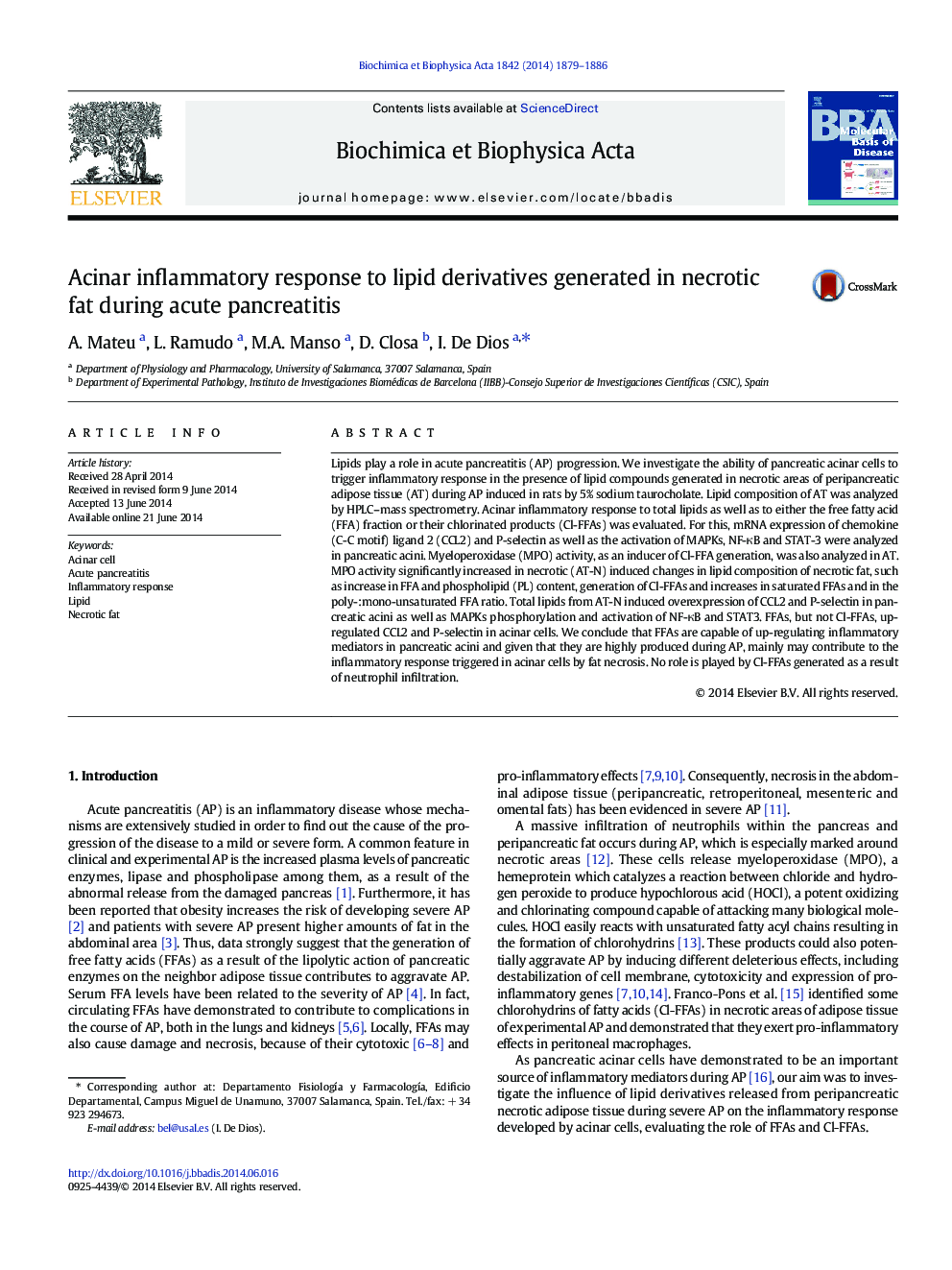| Article ID | Journal | Published Year | Pages | File Type |
|---|---|---|---|---|
| 8260340 | Biochimica et Biophysica Acta (BBA) - Molecular Basis of Disease | 2014 | 8 Pages |
Abstract
Lipids play a role in acute pancreatitis (AP) progression. We investigate the ability of pancreatic acinar cells to trigger inflammatory response in the presence of lipid compounds generated in necrotic areas of peripancreatic adipose tissue (AT) during AP induced in rats by 5% sodium taurocholate. Lipid composition of AT was analyzed by HPLC-mass spectrometry. Acinar inflammatory response to total lipids as well as to either the free fatty acid (FFA) fraction or their chlorinated products (Cl-FFAs) was evaluated. For this, mRNA expression of chemokine (C-C motif) ligand 2 (CCL2) and P-selectin as well as the activation of MAPKs, NF-κB and STAT-3 were analyzed in pancreatic acini. Myeloperoxidase (MPO) activity, as an inducer of Cl-FFA generation, was also analyzed in AT. MPO activity significantly increased in necrotic (AT-N) induced changes in lipid composition of necrotic fat, such as increase in FFA and phospholipid (PL) content, generation of Cl-FFAs and increases in saturated FFAs and in the poly-:mono-unsaturated FFA ratio. Total lipids from AT-N induced overexpression of CCL2 and P-selectin in pancreatic acini as well as MAPKs phosphorylation and activation of NF-κB and STAT3. FFAs, but not Cl-FFAs, up-regulated CCL2 and P-selectin in acinar cells. We conclude that FFAs are capable of up-regulating inflammatory mediators in pancreatic acini and given that they are highly produced during AP, mainly may contribute to the inflammatory response triggered in acinar cells by fat necrosis. No role is played by Cl-FFAs generated as a result of neutrophil infiltration.
Related Topics
Life Sciences
Biochemistry, Genetics and Molecular Biology
Ageing
Authors
A. Mateu, L. Ramudo, M.A. Manso, D. Closa, I. De Dios,
